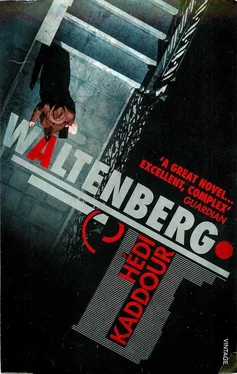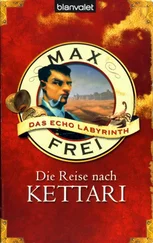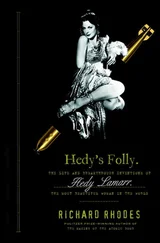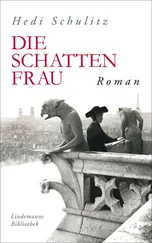Hedi Kaddour - Waltenberg
Здесь есть возможность читать онлайн «Hedi Kaddour - Waltenberg» весь текст электронной книги совершенно бесплатно (целиком полную версию без сокращений). В некоторых случаях можно слушать аудио, скачать через торрент в формате fb2 и присутствует краткое содержание. Год выпуска: 2009, Издательство: Vintage, Жанр: Современная проза, на английском языке. Описание произведения, (предисловие) а так же отзывы посетителей доступны на портале библиотеки ЛибКат.
- Название:Waltenberg
- Автор:
- Издательство:Vintage
- Жанр:
- Год:2009
- ISBN:нет данных
- Рейтинг книги:3 / 5. Голосов: 1
-
Избранное:Добавить в избранное
- Отзывы:
-
Ваша оценка:
- 60
- 1
- 2
- 3
- 4
- 5
Waltenberg: краткое содержание, описание и аннотация
Предлагаем к чтению аннотацию, описание, краткое содержание или предисловие (зависит от того, что написал сам автор книги «Waltenberg»). Если вы не нашли необходимую информацию о книге — напишите в комментариях, мы постараемся отыскать её.
Waltenberg
Waltenberg — читать онлайн бесплатно полную книгу (весь текст) целиком
Ниже представлен текст книги, разбитый по страницам. Система сохранения места последней прочитанной страницы, позволяет с удобством читать онлайн бесплатно книгу «Waltenberg», без необходимости каждый раз заново искать на чём Вы остановились. Поставьте закладку, и сможете в любой момент перейти на страницу, на которой закончили чтение.
Интервал:
Закладка:
Lazare was in the artillery, he asked to be transferred to us to be closer to the shooting, you have to, he’d say, when you’ve been French for only two generations.
Max knows Lazare is going to be killed, we have grown so old in so few months, death looms up in the midst of youth like youth itself, drunk with joy, while life grown sterile staggers along in dirty greatcoats to meet its end. Max stands on a threshold, he watches, feeling quite unreal, it’s also possible to feel unreal when you know that thirty years from now Lazare’s wife will not return from Ravensbrück.
On each day that preceded this determinedly offensive sortie against the pillboxes, Lazare wrote to his wife. In one letter, he even told her: ‘The treats I like best are, first, biscuits and fruit cake, then chocolate, honey, oranges and acid drops, we do three compulsory exercise sessions a day, physical training, bayonet practice and community singing, they’re teaching us “La Madelon”.’
Max watches Lazare, the infantrymen, his comrades, the CO, all in red and blue as they move off, they’ve talked about these colours, especially the red, didn’t they make it easier for the enemy to spot our soldiers? Contrary to certain allegations, the argument had not been ignored but one remark — in addition to worries about the continuing domestic production of madder from which the dye was made — had settled the matter from on high:
‘In the matter of the dress of the French soldier, the disadvantage of the brightness of the colours is more than compensated for by the ardour which they inspire in him.’
The stuff of legend, by Saint George! On 4 September the troopers of the 12th Dragoons charge across the field of Monfaubert. Three troops of cavalry with fear in their bellies, thumping hearts, the sound of bugles and full battle kit of which all will end up being obliterated: army-red trousers with sky-blue piping, dark blue tunic with white trim to collar and facings, the clover-leaf shoulder tabs picked out in white cotton, blue collar-patch, silver buttons, red numbers, polished steel helmet with crest and black horse-hair plume (red for buglers), brass chin-strap, snuff-coloured horse-cloth, black gaiters, tan belts and straps, fatigue coat, saddle girth, blade-shaped cantle, greatcoat in a tight roll sixty-six centimetres wide, short under-saddle made of webbing, riveted girth-leathers, an explosive charge, lance-holder and Marbach key.
One hundred and twenty kilos per horse with rider, a hundred mounted ex-farmhands led by officers with aristocratic names, not all of them, but they set the tone, no need for them to keep their distance with the men to be obeyed, and no need for the ex-farmboys to touch their forelocks to keep their place, it’s a genuine society in itself, with values, there’s a positive side to everything, the officers don’t give too much thought for the men, they know their horses better, though not all of them, the hardest ones are the NCOs.
They’re every man jack of them heartily sick of these last two months of marches, counter-marches, retreats, nights when horses are not unsaddled and men sleep with their helmets on, bridle in hand. The fear comes little by little, not at the start, because at the start they’re still living the legend, a new Reichshoffen charge and a victory, ‘victory’, they said, ‘or death’ because they hadn’t seen death close up, brave words, no one would buckle, they didn’t care a damn about the mounted gendarmes forming a screen behind the front lines ready to round up any soldiers who ran away, they repeated what the colonel of the gendarmerie had said in 1870:
‘Gendarmes, remember that you have families and that your horses are your own property!’
All your gendarmes are good for is to make life complicated for the poor bastard who has got himself separated from his unit after a failed attack!
The fear came little by little, from sitting on a horse and doing nothing while being shelled, from being made to take a back seat by men on bicycles and foot soldiers, even by kitemen, from thinking about the kids, from an order to cross a road as last week, the order was issued well before the Germans brought their 77s to bear, but the road still had to be crossed, it was only after they’d crossed it that they received the order to retreat, which meant crossing it again while being shelled by the same 77s, you’ve got to carry out orders, a total shambles.
And so at Monfaubert the dragoons charge to demonstrate that they are good for more than rounding up prisoners or serving as target practice for German 77s, they are charging because more and more people keep telling them: ‘You’re in the wrong war.’
They intend to fight and win a battle such as was never fought and won, you’ll see what we make of your modern warfare, they are charging for the legend, such is the view of the Captain, the subalterns and a few of the men.
The rest do it because they’re there, might as well charge because this is a dream, trade fear for illusion for a moment, just as the young men of the Tsar’s guard charged at Austerlitz so that Napoleon would say: ‘Tonight many pretty ladies will weep.’
Bound and gagged, Hans lies curled up on the moss and dead leaves, they’re going to kill him, like Johann, no, he’s a prisoner, prisoners can’t be killed, Hans is virtually certain of that, nor do they cut off prisoners’ ears before killing them, they obey the laws of war, they’ve got to respect prisoners and the Red Cross, no officer would still dare shout at his men: ‘No prisoners!’
Hans is not going to die, das Wandern , he walks towards a mill, towards a woman who sings a song about a mill, an immortal song, even the heavy millstones enter the refrain, ‘Let me go in peace and walk’, river where are we going? Later here is Madame Nietnagel, her voice that of a teacher accustomed to being instantly obeyed, she was speaking of jealousy and anger directed at the hunter, you are angry, you must be angry, Mademoiselle Hotspur, there is the sound of the hunting horn in your voice, the melody is overpowering the song, listen, listen, listen carefully to the piano, it plays what is written, staccato, the piano plays staccato, the voice stays with the piano’s right hand, you must not stray from it, that’s good, it’s fast but you’re not running away with it, you’re going sharp, Madame Nietnagel’s very fat fingers on the keys, small hands, very quick movements, she said that this Lied of the hunter is pretty much an exercise, the whole of the first section keeps the mood sombre, but it mustn’t become too intense, and do not make it darker, and keep the second section in the middle range.
Madame Nietnagel’s face lit up, she carried on in the same vein: ‘This is the hardest passage, you think you’re going to be able to rest the voice but this is the hardest part, and when you are well launched, you tend to go sharp, scheut, the highest — and loudest — note takes fright.’
Madame Nietnagel turned to Hans with an air of complicity which to her was the height of suggestive banter:
‘A young she-goat frightened by the hunter’s beard, do not contract!’
Madame Nietnagel laid her fingers on Lena’s diaphragm:
‘Keep your sides supple, and when you sing low you must save enough breath otherwise the stomach sags forward, which is not at all attractive, don’t you agree?’
She was looking at Hans when she said this.
A war in which prisoners are not killed, the officers are far too busy dying gloriously, leading their men, a bullet in the head, a small clean hole, very little blood, just the red blotch which in the paintings of gifted artists serves to draw the eye of the beholder. The officers die for the legend, they will not sully their glory with an obscene order to have prisoners and wounded men shot, on the day war broke out President Poincaré spoke of ‘the eternal moral power of right which neither peoples nor individuals can disregard with impunity’, these lieutenants and captains die as Péguy died at Villeroi on 6 September, defending right, and from a shot in the middle of his forehead.
Читать дальшеИнтервал:
Закладка:
Похожие книги на «Waltenberg»
Представляем Вашему вниманию похожие книги на «Waltenberg» списком для выбора. Мы отобрали схожую по названию и смыслу литературу в надежде предоставить читателям больше вариантов отыскать новые, интересные, ещё непрочитанные произведения.
Обсуждение, отзывы о книге «Waltenberg» и просто собственные мнения читателей. Оставьте ваши комментарии, напишите, что Вы думаете о произведении, его смысле или главных героях. Укажите что конкретно понравилось, а что нет, и почему Вы так считаете.












